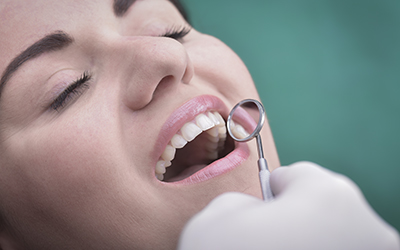Image Credit:
Image Credit:

Bruxism is a dental problem that causes the clenching and grinding of the teeth during sleep. Bruxism can be the result of sleep disorders or stress, but no matter what the cause is, it can do quite a bit of damage to your oral health. Not only can bruxism damage the teeth, it can also affect your jaw, and your bite pattern.
While each case of bruxism is different, there are a few common symptoms indicative of the disorder. These symptoms include:
While bruxism cannot be cured, the symptoms can be managed. This is often achieved with the help of a night guard, which fits over the top teeth to prevent the jaws from coming into contact with each other. If you believe you’re suffering from bruxism and would like information about night guards, please contact your general dentist.
Here at Coastal Periodontics in Portsmouth, New Hampshire, we’re here to help with all of your periodontic needs. Please call us today to make an appointment.